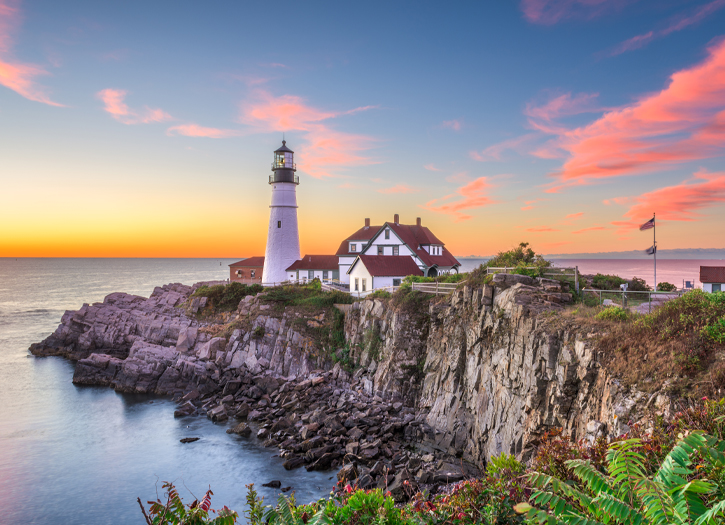The COVID-19 pandemic was publicly reported to have reached the U.S. state of Maine on March 12, 2020. As of December 13, 2020, the Maine Department of Health and Human Services reported 13,946 confirmed and 1,977 probable cases in the state, with 257 deaths attributed to the virus.
The Maine Center for Disease Control and Prevention reported that the state’s second-largest outbreak occurred after a wedding reception on August 7, 2020. Sixty-five people attended a reception in Millinocket at a hall that had capacity for 50 people. About half the 53 cases were found in wedding guests, and one woman, who was not a guest, died on August 22. It is unclear if guests wore masks. By September 5, the outbreak had infected 177 people and caused seven deaths, including 80 cases at a prison 230 mi (370 km) away. On October 22, 2020, 46 COVID-19 cases were linked to a fellowship rally between October 2 and October 4.On March 15, 2020, Governor Janet Mills declared a civil state of emergency to combat the outbreak.
On March 16, 2020, Maine was one of the first states to have its application for the United States Small Business Administration Economic Injury Disaster Loan approved, which would help businesses in Maine recover financial losses due to coronavirus closures. On March 16, Governor Mills also called for all Saint Patrick’s Day events to be cancelled throughout the state. The Maine Legislature also enacted a supplemental budget of $73 million which focused on coronavirus response, including $1 million to the Maine Center for Disease Control and Prevention, $15 million to increase Maine Care reimbursement rates for health care providers, and $38 million to K-12 education to help in the wake of school closures.
On April 3, Governor Mills enacted an executive order which mandated travelers arriving in Maine to self-quarantine for 14 days.Under this order, travelers were required to quarantine upon arrival regardless of their state of residency. This order also suspended hotels, motels, bed and breakfasts, short-term rentals, RV parks, campgrounds, and all public and private camping facilities.Violations of the order could be subject to a penalty of six months in jail or a $1,000 fine.On April 4, Governor Mills announced that her request for a major disaster declaration was approved by President Donald Trump. This declaration allows for state agencies and municipalities in Maine to be reimbursed for 75% of approved costs related to pandemic response.
On March 25, 2020, Governor Janet Mills signed an agreement through the Maine Emergency Management Agency with the University of Maine System and the Maine Community College System to coordinate assistance requests and ensure the deployment of resources to aid in the government response to COVID-19. Maine colleges and universities received $41 million in federal aid as part of the Coronavirus Aid, Relief, and Economic Security (CARES) Act, with $17.2 million going to the University of Maine System’s seven campuses and $8.7 million going to the Maine Community College System. Half of the federal aid money received will go directly to supporting students.
The Maine public university system includes the University of Maine campus in Orono, The University of Maine at Augusta, The University of Maine at Farmington, The University of Maine at Fort Kent, the University of Maine at Presque Isle, the University of Maine at Machias, the University of Southern Maine, and the University of Maine School of Law.The University of Maine system announced that all courses would be administered via remote learning starting March 25, 2020, with the Law School resuming classes on March 23, 2020. The 90% of students who vacated their residence halls were eligible for tuition rebates on a case-by-case basis.Commencement ceremonies across the university system originally scheduled for May 9, 2020 were postponed, and each individual university will designate a postponement date.
MaineDOT has been able to schedule more daytime road work due to the reduced traffic caused by the pandemic, which means expensive night work is not necessary, saving costs. Boardings at the Portland International Jetport dropped by 70 percent compared to the prior year for the week ending March 21.







Add Comment